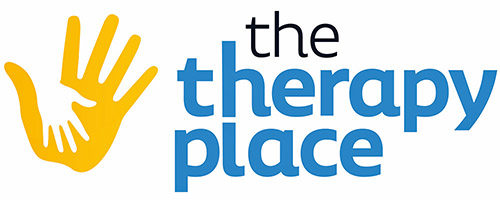
Question: Is it better to have therapy completed during school, or in the sensory gyms? What would your recommendation be as a therapist?
Answer by Leah Gross:
Every situation and child is different. Each child needs different services and therefore the answer would be different depending on circumstances. If the school environment is the setting in which the child is struggling, then the school setting would be most beneficial. The occupational therapist has the opportunity to collaborate with teachers and can observe the child in action. The OT can give recommendations to the teacher to help the child excel. Here’s two examples to explain the point:
If a child has a hard time sitting at a desk at school, the parent won’t necessarily pick up on this at home where there is no structure or sitting. The OT will work with the teacher to suggest a better way for the child to sit; a cushion, a sensory diet for the child, etc. Hopefully the issue can be resolved before the child is really struggling. Another example would be a child that’s struggling with writing in the classroom. The therapist can go in and make sure the child’s hand is positioned correctly, that their desk is positioned in the best way possible, that the writing equipment is the best for this child, etc.
However, sometimes the sensory clinic is a better option. The therapy gyms have high-end equipment and can offer more than a school gym. A parent is more involved and can better understand the process, as there is direct communication with the therapist throughout. The parent can watch and see what the therapist is doing so that they can carry the skills over at home. This is often particularly helpful for a highly sensory child whose issues are occurring at home as well. When a parent is having a hard time with regulation of bath time, bedtime, etc., they are able to implement skills learned in therapy.
That being said, when therapy is done at the clinic, there is less distraction. The convenience of therapy being done in school is a huge plus for parents who are working and don’t have the ability to drop off and pick up their child; in-school therapy is a great option where goals can be met as well. However, if a parent does have that flexibility, therapy would definitely be recommended in the clinic.
Answer by Esti Schiff:
I am a big supporter of therapy done in school. Having the therapist in the school allows for collaboration between the teacher, therapist, principals and any other professional working with the child. Collaboration is the key to carryover. Everyone working together and seeing the whole child ensures that each discipline is not putting a “band aid” onto the problem and that the root of the issue is being addressed.
When the therapist works directly with the teacher, the therapist can hear firsthand where the breakdowns are happening in the classroom, and can ensure that the therapy is targeting those areas. It also affords the therapist the opportunity to give the teacher helpful suggestions on how to incorporate into the classroom that which is being taught in the therapy room. The more communication there is between the school and the therapist, the better chance the student has of generalizing the skill. A teacher will be able to communicate more quickly with the therapist if he/she sees them during the day rather than having to remember to call them at the end of the day.
At the end of each session, therapists can communicate with parents by writing a note with the details of the session along with carryover homework activities. This is an excellent way to keep parents involved even when they are not attending every session. When therapy is done in the school, the therapist has the opportunity to observe the student in a natural environment. Watching how the student interacts with peers during recess, seeing how the student conducts him/herself in the hallway or seeing how the student is attending during class are all very valuable sources of information. This information helps the therapist see the whole child and ensures that the therapy is very targeted. Targeted therapy, collaboration between disciplines, and effective communication are the key ingredients for successful therapy.
Leah Gross, OTR/L, founded The Therapy Place for OT and Speech Therapy in 2012. The Therapy Place has three private practice clinics throughout New Jersey, all medically approved. In 2020, Leah also founded CircleCare, a therapy clinic for ABA therapy.
Esti Schiff, MS, CCC-SLP, has been working with children for over 17 years. Esti has recently joined the team at The Therapy Place as director of the speech and language department. Esti’s vast and varied experience in the field of speech and language pathology allows her to provide clients with the best-in-class speech therapy services.











